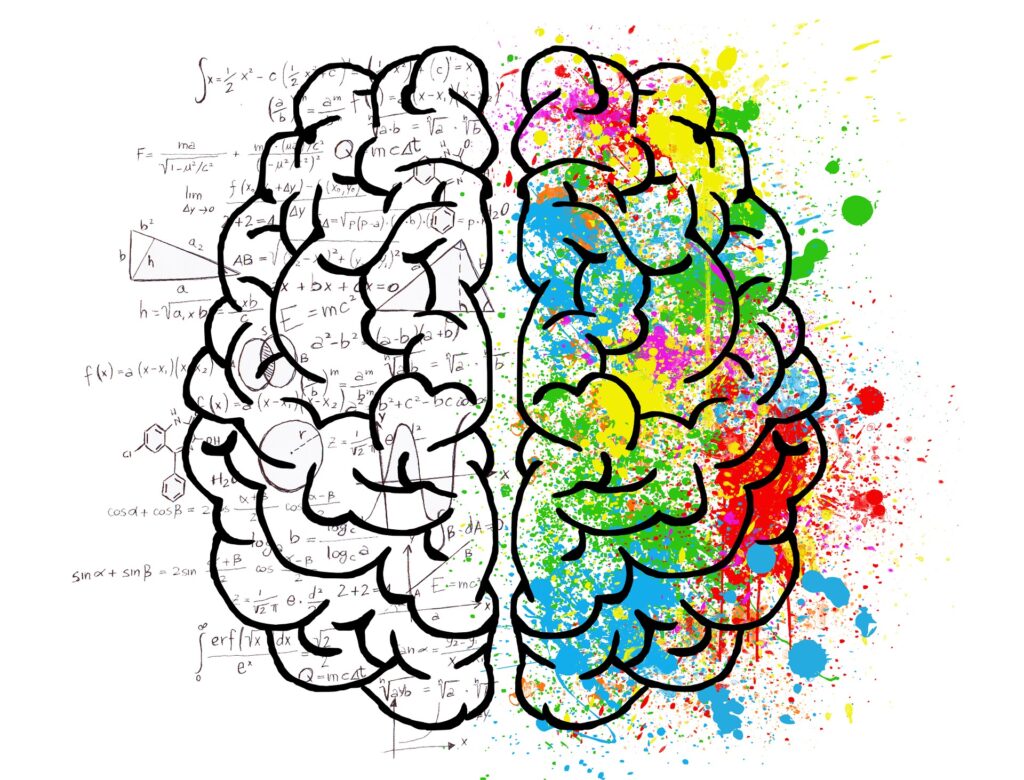Anxiety is very common. In 2013 there were more than 8 million cases of anxiety in the UK and with the Covid-19 pandemic, there are certainly many more this year. Feeling anxious is really horrible and can lead to a lot of self doubt. Sometimes there is a trigger but more often than not, anxiety seems to come out of the blue. Many women find they feel anxious at certain times of their menstrual cycle and many women experience anxiety symptoms in the lead up to the menopause. So what is the link between hormones and anxiety and why is it that anxiety can be the first sign of the menopause?
Let’s first remember that anxiety can be a good thing. A state of hyper alertness was designed to help us when we meet an enemy, to either stay and fight or to flee the scene (the fight or flight response). That can certainly help us to perform well when it matters, perhaps in an exam, interview or a tricky conversation. It’s only when that hyper alert state happens when there isn’t a threatening situation that problems arise. We don’t need that racing heart, increased breathing rate or jitteriness when all we’re trying to do is go to work!
Our brain is the control centre and it is responsible for taking in all the messages from around our body, interpreting them and sending out messages which determine our actions and feelings. It is a highly complex and not fully understood organ. The information the brain receives may come in the form of nerve impulses or chemical messages which include hormonal messages. The brain is striving for equilibrium for our body, to keep everything in balance so we can function at our optimum.

As a GP, I frequently had women coming to me fearing they were losing their minds, with symptoms of anxiety and associated poor memory, inability to concentrate and huge self doubt. Often the cause was that they had moved into the peri-menopause – the years leading up to the menopause when periods have fully ceased. To discover this was their reason for how they felt was often a huge relief as they feared early onset dementia.
Oestrogen and progesterone are the two main female sex hormones and they increase up and down throughout the menstrual cycle with oestrogen being the predominant hormone in the first half and progesterone in the second half. It’s not just the absolute quantities of these hormones that can affect your mood but the balance between them and the way their effect on the brain influences the release of other hormones such as cortisol and adrenaline, the main stress hormones responsible for that fight or flight response.
During the peri-menopause, both oestrogen and progesterone levels fall. Oestrogen is generally thought to have a positive effect on mood and progesterone can have a calming effect so when they decline, then low mood and anxious feelings can appear. It’s not quite as simple as this, nothing is simple in the brain because so many systems interact with each other, but just knowing that the hormone changes that are occurring can be fully responsible for your mood is very reassuring to some women.
It’s also important to remember that the changing hormone levels of the peri-menopause may have indirect effects causing anxiety. For example, night sweats are attributable to reducing hormone levels and can lead to many sleepless nights. A single disturbed night or a more chronic sleep deprivation can leave you feeling on edge, jittery and extremely anxious. Similarly, there’s nothing like the threat or presence of a hot flush when you’re in the middle of giving a presentation to make you feel anxious!
There’s plenty else going on around this time of life which can lead to anxiety too. Life events including elderly parents to care for, family stresses and career changes all cause stress and strain and trigger anxiety in their own right, independent of hormonal fluctuations.
So, if you’re feeling anxious, take a step back and consider whether it could be the peri-menopause. It may well be a great big jumble of everything but knowing that it isn’t your fault, others experience the same and that it won’t last for ever, can give you hope in what can be a confusing and tricky time.
The next blog will look at simple things we can do everyday to ease anxiety in the peri-menopause.
Featured Image: Arek Socha at Pixabay








2 Comments